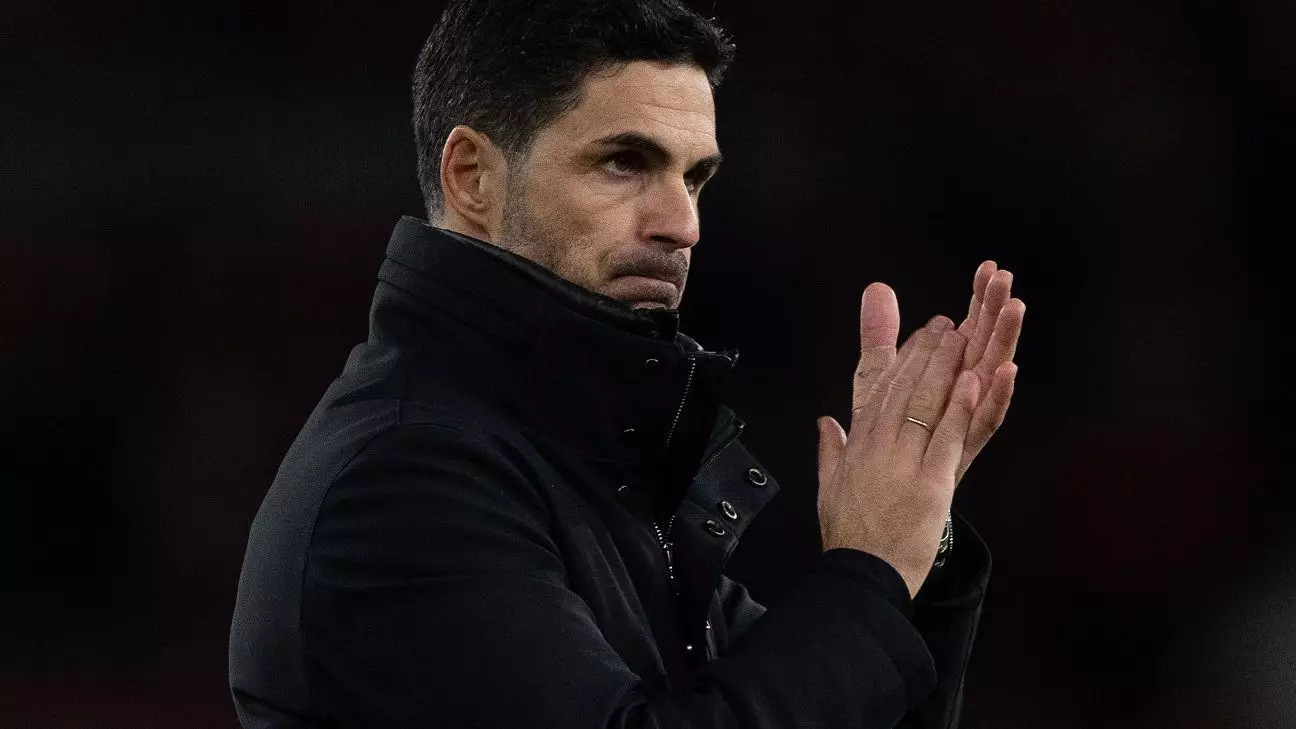In the world of football, the transfer window is often a period laden with hope and expectation, where clubs aspire to bolster their squads and fans dream of marquee signings. Yet this season, Arsenal manager Mikel Arteta finds himself confronted with the harsh realities of the transfer market. Despite a concerted effort to secure a new striker in January, notably with a £40 million bid for Ollie Watkins that was ultimately rebuffed by Aston Villa, Arsenal has emerged empty-handed. Arteta’s disappointment echoes through the club’s corridors, yet his focus remains steadfast on the principles of discipline and long-term planning.
Arteta’s admission of dissatisfaction over the failure to acquire a striker underscores the limitations that have plagued Arsenal this season. The absence of key players like Bukayo Saka and Gabriel Jesus due to injuries has only amplified the need for attacking reinforcements. While the intent to enhance the squad was clear, the actualization of that ambition has proven elusive. Arteta’s remarks reveal a duality in the club’s strategy; while there is recognition of the need for immediate solutions, there is also a commitment to a defined vision for future recruitment.
Throughout his tenure, Arteta has emphasized the importance of bringing in players who fit the specific needs of the team. This necessitates a delicate balance; the pressure to deliver immediate results can often clash with the need to remain disciplined and patient. The failure to sign a striker in January could be viewed as a gamble; however, Arteta framed it as a reality that must be confronted. By refusing to hastily add players simply for the sake of increasing numbers, he highlights a critical aspect of roster management—the importance of fit over function.
Arteta’s insistence on discipline in recruitment raises pertinent questions about the broader strategy behind Arsenal’s transfer policies. The clarity of their intentions contrasts sharply with the frustrations of absence; while the club aims to maintain a consistent approach to player acquisitions, this can often lead to a stagnant squad if opportunities are consistently passed over. The lack of depth, especially in crucial positions, may indeed threaten the club’s chances in domestic and European competitions.
Moreover, Arteta’s comments regarding the size of his squad offer a glimpse into the realities of modern football management. Unlike many of their rivals, Arsenal’s roster isn’t expansive; the club has had to navigate a challenging landscape that necessitates a focus on quality over quantity. The need for a more efficient integration of academy talent into the first team plays a significant role in this strategy. A reliance on homegrown players can yield benefits, fostering not just talent but also a deeper connection between the club and its fanbase.
Arsenal’s situation is compounded by their upcoming fixtures, particularly the Carabao Cup semifinal against Newcastle United, where they face a steep uphill battle following a 2-0 loss. Arteta’s squad must find resilience and unity in the face of adversity, as they strive to overturn that deficit. Here again, the philosophy of discipline comes to the forefront; the team must remain committed to their game plan and promote synergy amongst players, many of whom may be stepping into vital roles due to injuries.
As the transfer window closes and with summer looming on the horizon, it will be essential for Arsenal to leverage this time effectively. Long-term targets, including the likes of Benjamin Sesko and Alexander Isak, could reshape the attacking dynamic currently struggling under the weight of injury setbacks. In addressing their needs, Arsenal has a unique opportunity to not only focus on filling immediate gaps but to cultivate a squad aligned with their strategic vision.
As Mikel Arteta navigates the balancing act between discipline and ambition, Arsenal fans are left to ponder what the future holds. With pressing challenges both on and off the pitch, the Gunners stand at a critical juncture that could dictate their trajectory in the coming months.

